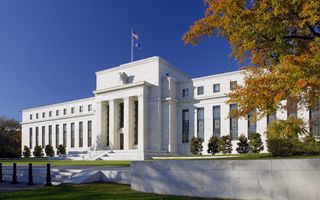(Finance) – The members of FOMCthe committee that regulates the Fed’s monetary policy, believe that the committee is “at or near the point where it would be appropriate to slow down the pace of policy easing“. This is what emerges from the minutes of the US central bank meeting on 17-18 December 2024, in which rates were lowered by 25 basis points.
Central bankers also indicated that if the data arrived more or less as expected, with inflation continuing to fall sustainably to 2 percent and the economy remaining near peak employment, it would It is advisable to continue moving gradually towards a more neutral policy position over time. Some participants noted that, with the target range for rates lowered by a total of 100 basis points with that meeting’s decision, the policy rate is “now significantly closer to its neutral value than when the Committee initiated the easing of policy in September”.
Furthermore, many participants suggested that “a number of factors underlined the need for a cautious approach to monetary policy decisions in the coming quarters“. These factors included recent high inflation readings, continued strength in spending, reduced downside risks to the outlook for the labor market and economic activity, and increased upside risks to the inflation outlook. A substantial majority of participants noted that, at the current juncture, with its policy stance still significantly restrictive, the Committee is “well positioned to take time to assess the evolving outlook for economic activity and inflation, including the economy’s responses to previous political actions of the Committee”.
In their assessment of the risks and uncertainties associated with the economic outlook, the vast majority of participants considered that the risks to the achievement of dual mandate objectives of the Committee of Maximum Employment and Price Stability were “more or less in balance”. Notably, participants saw bilateral risks to achieving these goals.
Nearly all participants felt that upside risks to the inflation outlook had increased. As reasons for this judgment, participants cited recent stronger-than-expected inflation readings and “probable effects of potential changes in trade and immigration policy“, reads the document. Although not named, this passage appears to refer to policies announced by President-elect Donald Trump. Other reasons mentioned included possible disruptions in global supply chains due to geopolitical developments, a broader-than-expected easing of financial conditions , stronger than expected household spending and more persistent increases in house prices.
“Some participants noted that, in the period ahead, it may be difficult to distinguish more persistent influences on inflation from potentially temporary ones, such as those resulting from changes in trade policy that could lead to changes in price levels“, we read in the minutes. Also in this case the reference seems to be to Trump.
